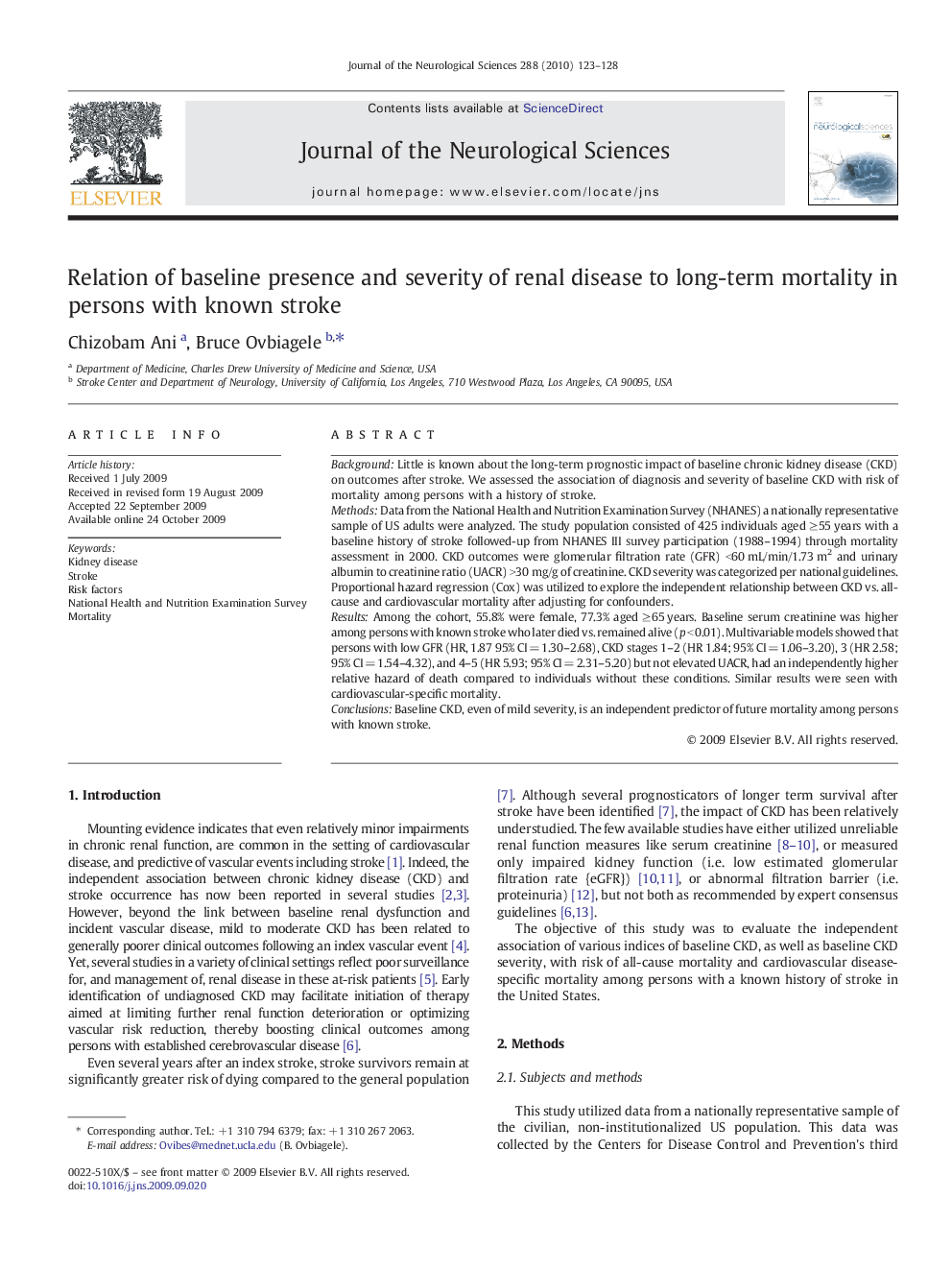| Article ID | Journal | Published Year | Pages | File Type |
|---|---|---|---|---|
| 1914767 | Journal of the Neurological Sciences | 2010 | 6 Pages |
BackgroundLittle is known about the long-term prognostic impact of baseline chronic kidney disease (CKD) on outcomes after stroke. We assessed the association of diagnosis and severity of baseline CKD with risk of mortality among persons with a history of stroke.MethodsData from the National Health and Nutrition Examination Survey (NHANES) a nationally representative sample of US adults were analyzed. The study population consisted of 425 individuals aged ≥55 years with a baseline history of stroke followed-up from NHANES III survey participation (1988–1994) through mortality assessment in 2000. CKD outcomes were glomerular filtration rate (GFR) <60 mL/min/1.73 m2 and urinary albumin to creatinine ratio (UACR) >30 mg/g of creatinine. CKD severity was categorized per national guidelines. Proportional hazard regression (Cox) was utilized to explore the independent relationship between CKD vs. all-cause and cardiovascular mortality after adjusting for confounders.ResultsAmong the cohort, 55.8% were female, 77.3% aged ≥65 years. Baseline serum creatinine was higher among persons with known stroke who later died vs. remained alive (p < 0.01). Multivariable models showed that persons with low GFR (HR, 1.87 95% CI = 1.30–2.68), CKD stages 1–2 (HR 1.84; 95% CI = 1.06–3.20), 3 (HR 2.58; 95% CI = 1.54–4.32), and 4–5 (HR 5.93; 95% CI = 2.31–5.20) but not elevated UACR, had an independently higher relative hazard of death compared to individuals without these conditions. Similar results were seen with cardiovascular-specific mortality.ConclusionsBaseline CKD, even of mild severity, is an independent predictor of future mortality among persons with known stroke.
